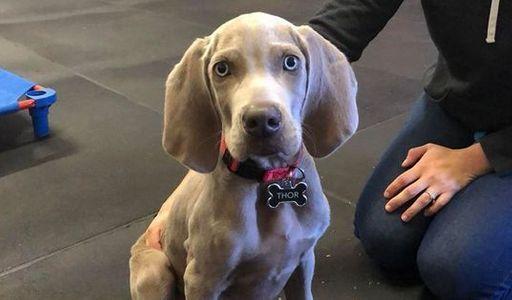How do I address separation anxiety? Nervous dogs or those with a history of abuse are more prone to have separation anxiety. Dogs suffering from anxiety can bark, whine, chew objects or cower in a safe space. This is curable for the majority of dogs. At Off Leash K9 Training London we address this issue frequently. Lack of confidence typically is the biggest culprit. We show you how to gradually correct separation anxiety and build confidence in your dog.
Dogs properly trained from birth are less likely to be impacted. Separation anxiety is a learned behaviour, although some breeds are more prone (ie Malinois or GSDs). Rescue dogs are most prone to this issue, most likely because of past trauma. This information should be considered before welcoming home a new dog. Overcoming this behaviour is as much about training owners as it is about dog training. A learned behaviour can be corrected with training and effort. We work with you to resolve the behaviour, but you have to be patient and consistent.
Small steps and never allow your dog to become stressed.
Each dog is different and your approach should match what is best for YOUR dog. Some dogs become anxious as soon as their owner is outside of their line of sight. Other dogs display separation anxiety when their owner leaves the house. Other cases show dogs become stressed after a period of time has passed. Even though different root causes and symptoms are displayed, it is best to have an expert work with you.
Click this link to see a before and after video of Gordon, a then one year old labradoodle who suffered from separation anxiety. This shows the difference the right training can make.
In general, dogs with separation anxiety need more separation. Place them in their crate or in another room all throughout the day, even when you are still home. This helps your dog acclimate to being “alone” and separated from you even whilst you are home. Start small and increase the duration and frequency. This will build your confidence as well as your dogs. Make it a positive experience, such as giving them a favourite toy or treat. Stay consistent and have patience. Contact us at 020 3890 3400 or info@olk9.co.uk if you have additional questions.




